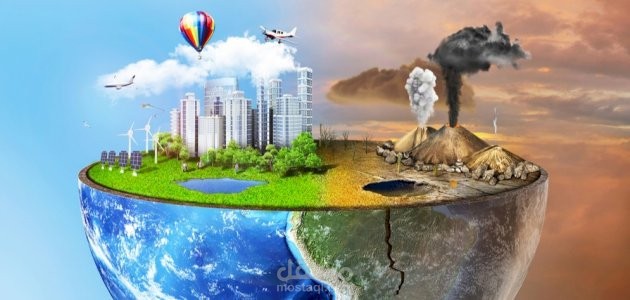Article about pollution
تفاصيل العمل
Pollution is a pressing issue that has significant implications for the environment, public health, and the economy. It refers to the introduction of harmful substances or pollutants into the environment, causing damage and disruption to ecosystems and human health.
There are several different types of pollution, including air pollution, water pollution, and plastic pollution. Air pollution is mainly caused by industrial emissions, vehicle exhaust, and burning of fossil fuels, leading to the release of harmful pollutants such as carbon monoxide, sulfur dioxide, and nitrogen oxides. These pollutants can have devastating effects on human health, causing respiratory problems, heart disease, and even cancer.
Water pollution occurs when harmful substances are discharged into rivers, lakes, and oceans, contaminating water sources and posing a threat to aquatic life and human health. Industrial waste, agricultural runoff, and improper disposal of waste materials are some of the main contributors to water pollution. Plastic pollution, on the other hand, refers to the accumulation of plastic waste in the environment, particularly in oceans and waterways. Plastic debris can harm marine life, disrupt ecosystems, and leach toxic chemicals into the environment.
The impacts of pollution are far-reaching and can have severe consequences for both the environment and human health. Pollution can contaminate soil, water, and air, leading to the destruction of habitats and ecosystems. It can also contribute to climate change, exacerbating global warming and extreme weather events.
In addition to its environmental effects, pollution poses a significant threat to human health. Exposure to pollutants in the air and water can lead to a variety of health problems, including respiratory illnesses, cardiovascular diseases, and neurological disorders. Children, the elderly, and individuals with pre-existing health conditions are particularly vulnerable to the effects of pollution.
Addressing pollution requires a multi-faceted approach that involves government regulations, public awareness campaigns, and individual actions. Governments must enforce strict environmental regulations to limit the release of harmful pollutants into the environment. Industries should adopt cleaner technologies and practices to reduce their environmental footprint. Individuals can also play a role by reducing their use of single-use plastics, carpooling or using public transportation, and supporting sustainable practices.
Ultimately, tackling pollution requires a collective effort from all sectors of society. By taking proactive steps to reduce pollution, we can protect the environment, safeguard human health, and create a more sustainable future for generations to come.
